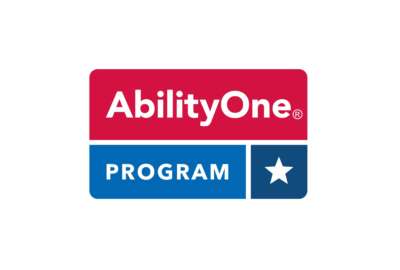Watch out contractors, the Justice Department might be coming for you
"What we have found in our practice is a lot of GSA and VA schedule contractors get trapped in discounting practices," said Barbara Kinosky.
False claims act lawsuits are on the rise. The Justice Department launched 500 of them in the past year, more than it has in decades. What’s going on and what should contractors be concerned with. Procurement attorney Barbara Kinosky of the Center Law Group joined the Federal Drive with Tom Temin to discuss more.
Interview transcript:
Tom Temin You have been really tracking this. What is the phenomenon? Give us the scope of what’s going on.
Barbara Kinosky Well, it got everybody’s attention when the FBI raided Carahsoft recently and locked out the employees, took their hard drives, computers and walked out the door, commenting briefly that they were the subject of two criminal subpoenas and one civil subpoena.
Tom Temin And False Claims Act actions by the government against a contractor are generally civil. Correct?
Barbara Kinosky Correct.
Tom Temin So why would they have a criminal one going on?
Barbara Kinosky Well, that’s because they must really have something that we don’t know about yet, because the standard on a criminal subpoena is beyond a reasonable doubt. A civil subpoena has a lower standard, a preponderance of the evidence. So it’s very interesting and very telling that there’s two criminal subpoenas and one civil subpoena.
Tom Temin Right. Because the way the False Claims Act works in practice, generally, it’s almost impossible for large contractors not to get hit with the occasional claim just because of the complexity of their markets and the number of transactions going on in the government. Somebody somewhere can find, Woops, you overcharged on this hourly rate or for this particular license.
Barbara Kinosky That’s absolutely correct. You are spot on. And what we have found in our practice is a lot of GSA and VA schedule contractors get trapped in discounting practices. And it’s really easy for GSA to find that a lot of them are confused. They think that subcontracting to a federal prime that is selling their services or products to the federal government is the same as selling directly to the government. That’s not true. If you discount to a prime contractor, that’s a totally different situation and can lead to investigations on discounting practices.
Tom Temin Right? So if it’s criminal, if something comes at you from a criminal standpoint, it’s because the government suspects you of deliberately and sort of systematically trying to evade the law.
Barbara Kinosky Right. And I think I’ve heard bribery mentioned, corruption, conspiracy, things like that. And that’s the issue that rise to a criminal subpoena.
Tom Temin But on the other hand, the Justice Department tends to throw the basket at people of everything they can think of and then pare down charges as it proceeds.
Barbara Kinosky That is absolutely right. You’ll notice that in a lot of these, when they’re not under a seal, you’ll see that they throw everything at the contractor, resolve some of them. And that’s very similar to a protest where as attorneys, we throw everything on the bid protest and then eventually it may come down to one issue.
Tom Temin And this 500 number that they filed, as you’ve put in your blog, it’s more than they have done since the late 1980s. What’s going on? Are contractors simply doing more wrongdoing or is there something going on in justice that they’ve decided, Hey, let’s go after these companies.
Barbara Kinosky Well, there was some type of investigation on who DOJ was targeting, and I believe it was congressionally initiated on what DOJ was focusing on. And it was some of the easier, low lying ones on medical, where there are bundling services that were necessary. You came in for a flu shot and they gave you a physical exam to bundled up with the flu shot, things like that, which were much easier to do. And looking at the history of DOJ, those were relatively easy for them and they get the press release.
Tom Temin These are the Medicare, Medicaid and VA type of areas.
Barbara Kinosky Yes, where they’re charging the government, bundling services, overcharging, things like that. I saw one where a person was charged for two surgeries and only had one. So you can only remove one pancreas or something like that. But anyway, you can’t do it the second time.
Tom Temin Right. Kidneys maybe, you only got one pancreas.
Barbara Kinosky Exactly. Kidneys is a different issue.
Tom Temin Does that mean, then that the number of cases of false claims in pricing and transactions in government contracting is not on the rise so much?
Barbara Kinosky They’re definitely on the rise. 54% increase from the previous year, which is huge. And they’re focusing now on things like small business certifications or is a lot in the service disabled veteran area. Is a service disabled veteran actually running the company. Is it a front for somebody else? Also on false billing, as you mentioned earlier. There has been a just a surge and these types of cases of looking at federal contractors. And what I find is really interesting as the 500 you mentioned are what they call self-initiated cases. The DOJ has initiated are not whistleblower cases.
Tom Temin Right. Because the whistleblower cases, that’s another whole kettle of fish. And that’s on the rise, too.
Barbara Kinosky That is absolutely correct, particularly in DoD contracts. And I’m expecting now with all the issues in cyber and certification, CMMC compliance, and those types of issues that we’re going to see more whistleblowers coming forward, particularly on things dealing with technology.
Tom Temin Sure. We’re speaking with Barbara Kinosky. She’s a partner at the Center Law Group. And what’s your best advice for contractors to stay clear of all this? Don’t do false claiming, but sometimes you almost can’t help it, given the complexity of the procurement regulations and the market you’re operating in.
Barbara Kinosky You’re absolutely right. It’s a difficult market to maneuver. If you’re just starting out, it’s difficult to figure out all the rules, particularly of schedules contracting, which are particularly complex and how to avoid DOJ. But definitely have a compliance program. And what I tell clients is that it doesn’t have to be extensive. It just has to be something. Make it right sized for your company, because a compliance program, if you have 100 employees, is going to be different than a compliance program if you have a million employees.
Tom Temin Sure. And also having a compliance program might be able to show the government that you were acting in good faith even though you made a mistake. And that would keep it in the civil area.
Barbara Kinosky Absolutely correct. And I think it’s going to be particularly difficult for contractors because there is a new civil cyber fraud initiative that DOJ launched in 2021, and that continues to grow in prominence. In 2023, DOJ settled multiple cases involving cybersecurity failures by contractors. So you’re going to see more and more of that.
Tom Temin And sounds like, and I know you’re an attorney that represents companies, but it’s probably not smart to represent yourself once DOJ shows up.
Barbara Kinosky Absolutely not. That is a very, very bad idea. And I’m not just saying this because I’m an attorney. But any time you may have to go to court, and that maybe go for other things, too. I would highly recommend getting an attorney. And also because you want to make sure that the subpoena is, I’m going to use the words again, right sized. I use that for compliance programs. But rightsize, the government will tend to ask for everything. And when you have an attorney evolve, you can narrow down somewhat the scope of the subpoena, and you can also possibly narrow down how much you have to produce at any given time. Because if they come in and they often will provide me every email for the last ten years, that’s big try to run the company to pay your legal fees for complying with the subpoena so you want to try and schedule that in different tranches, and you want to show basically that you are complying because the worst thing is to try and fight it.
Tom Temin Right. Do you think this might scare or just prevent some companies from otherwise coming into the federal market?
Barbara Kinosky Well, that I don’t mean to pivot back to Carahsoft, but they are a reseller. And that’s why a lot of companies try to get on somebody else’s contract. For instance, Microsoft has announced that they are no longer going to be a reseller, they’re going to be direct sales with the government, which is a huge pivot from them. But they in the past were selling off other schedules or other contracts just so they didn’t have to directly interface with the government.
Tom Temin So now they’ll have to deal directly with licensing issues.
Barbara Kinosky Correct, absolutely.
Copyright © 2024 Federal News Network. All rights reserved. This website is not intended for users located within the European Economic Area.
Tom Temin is host of the Federal Drive and has been providing insight on federal technology and management issues for more than 30 years.
Follow @tteminWFED






